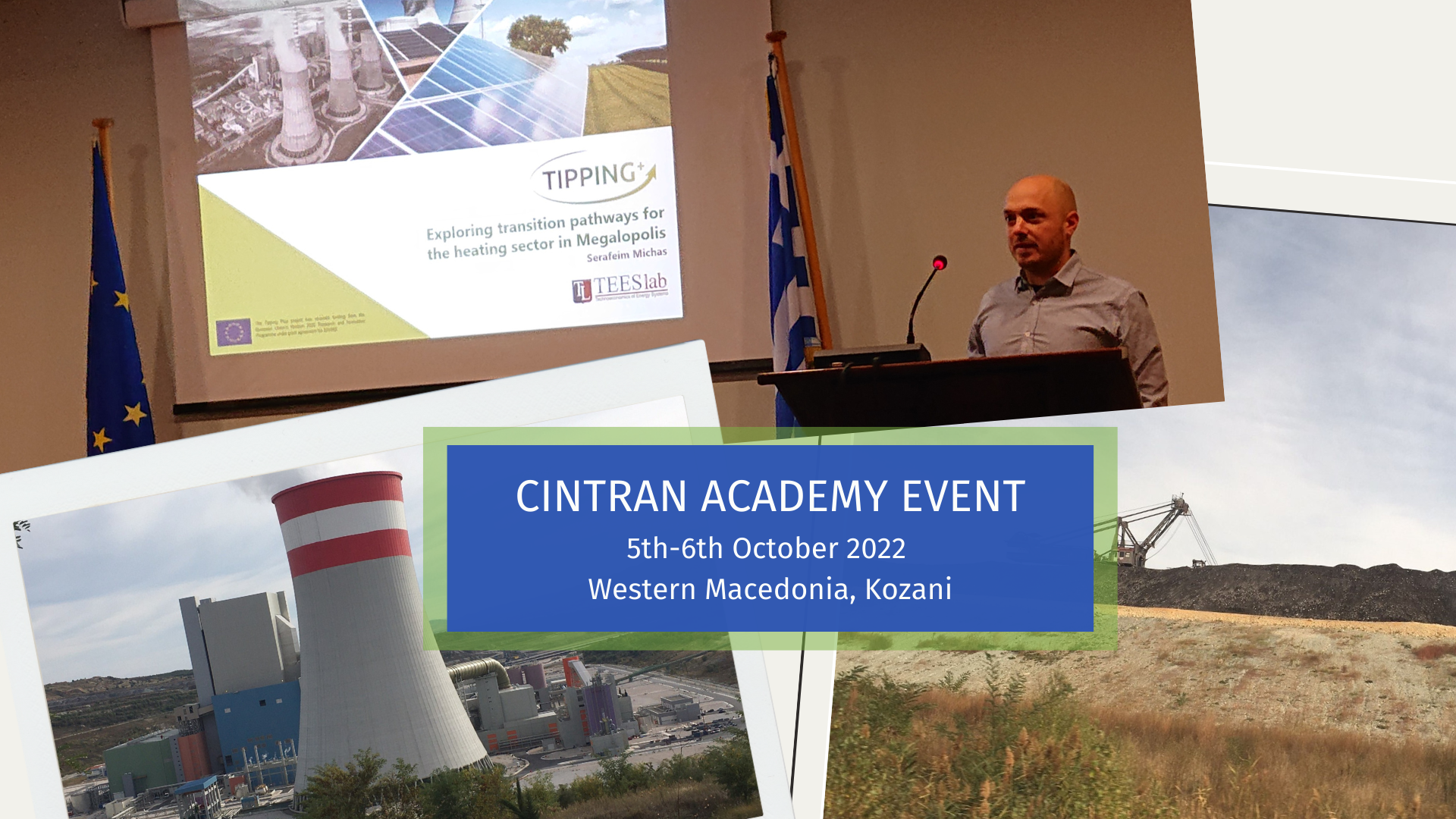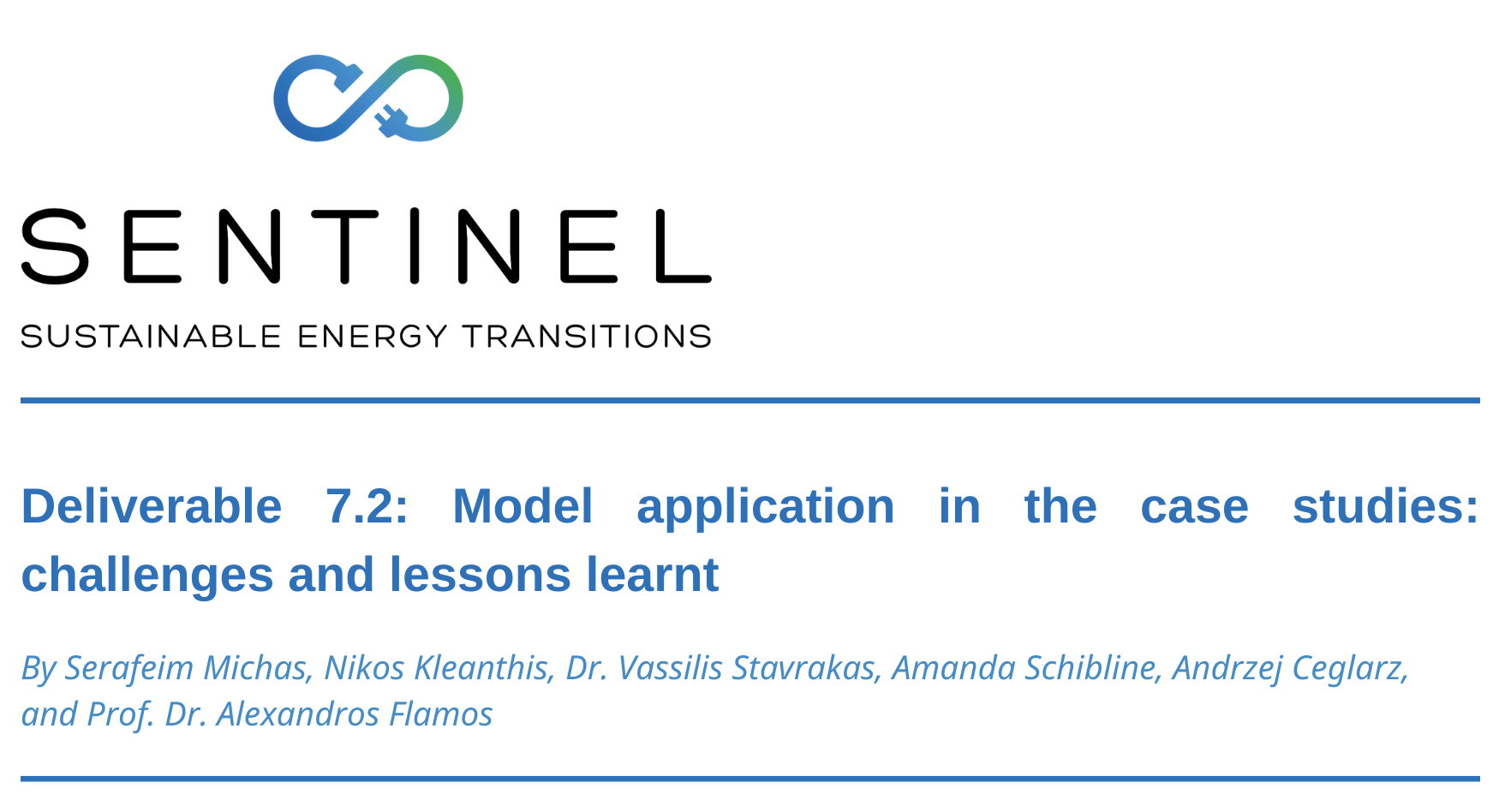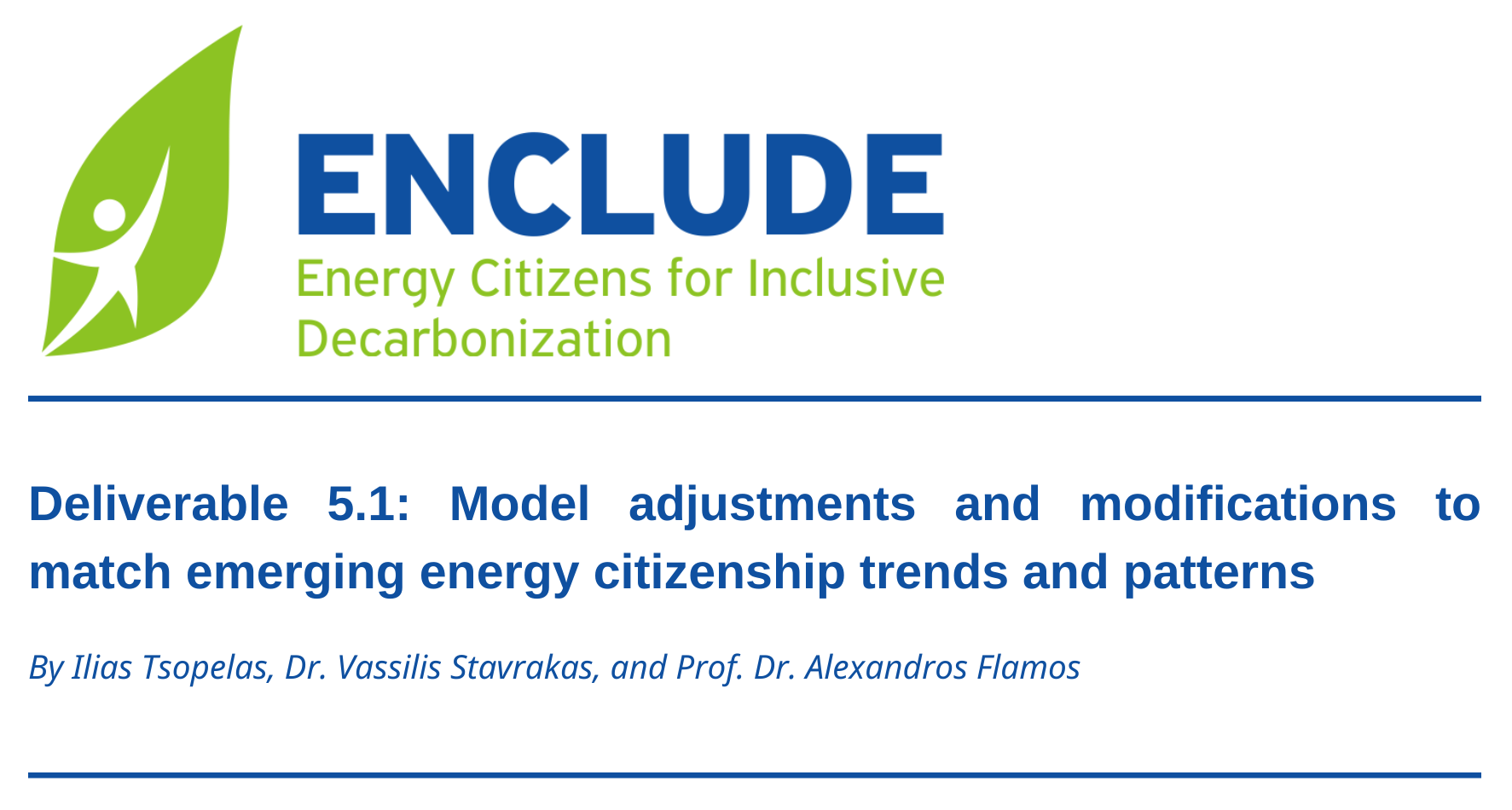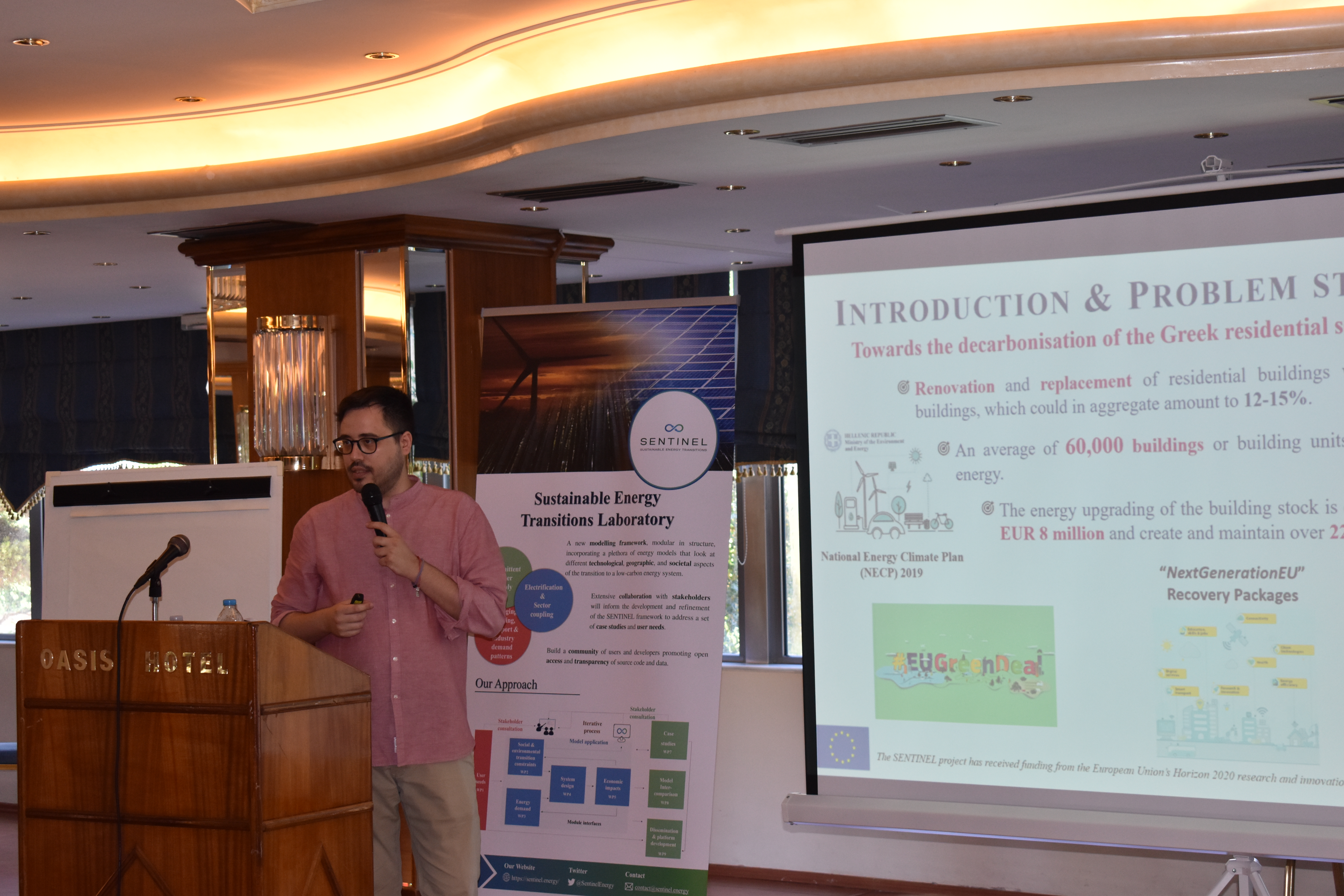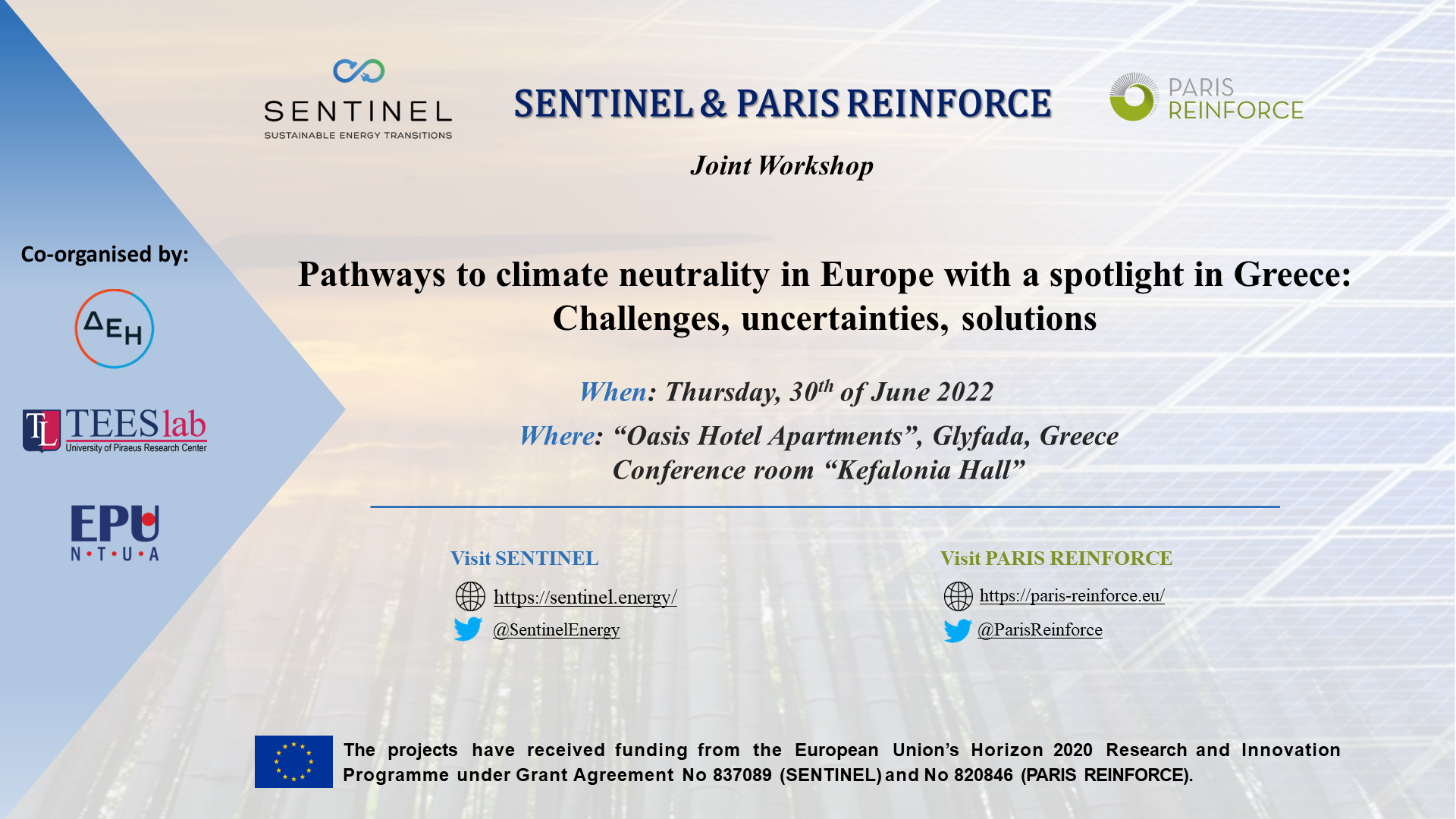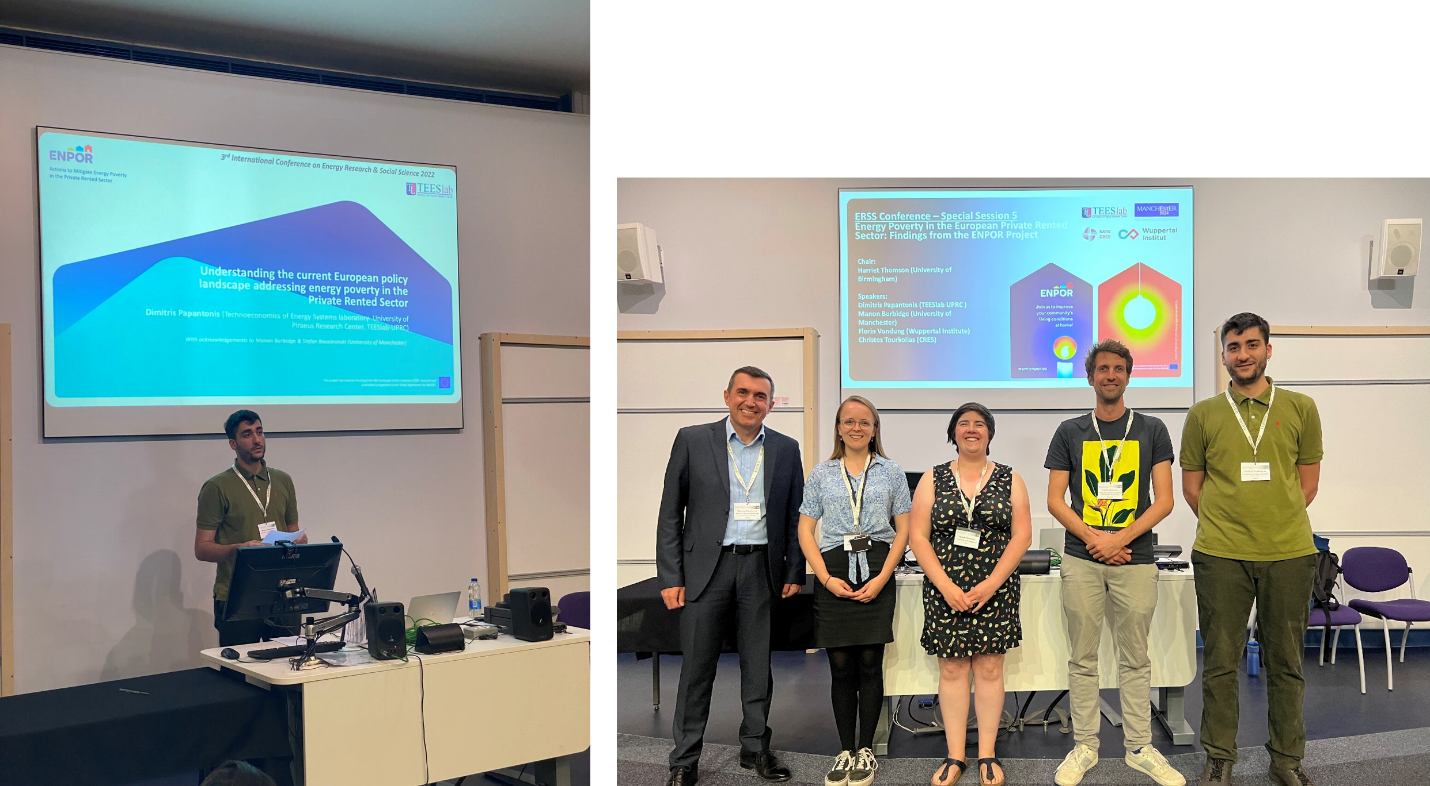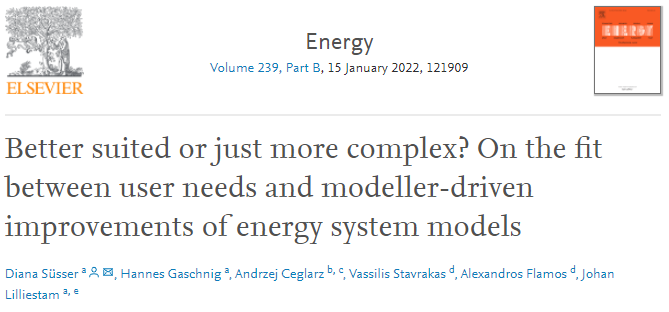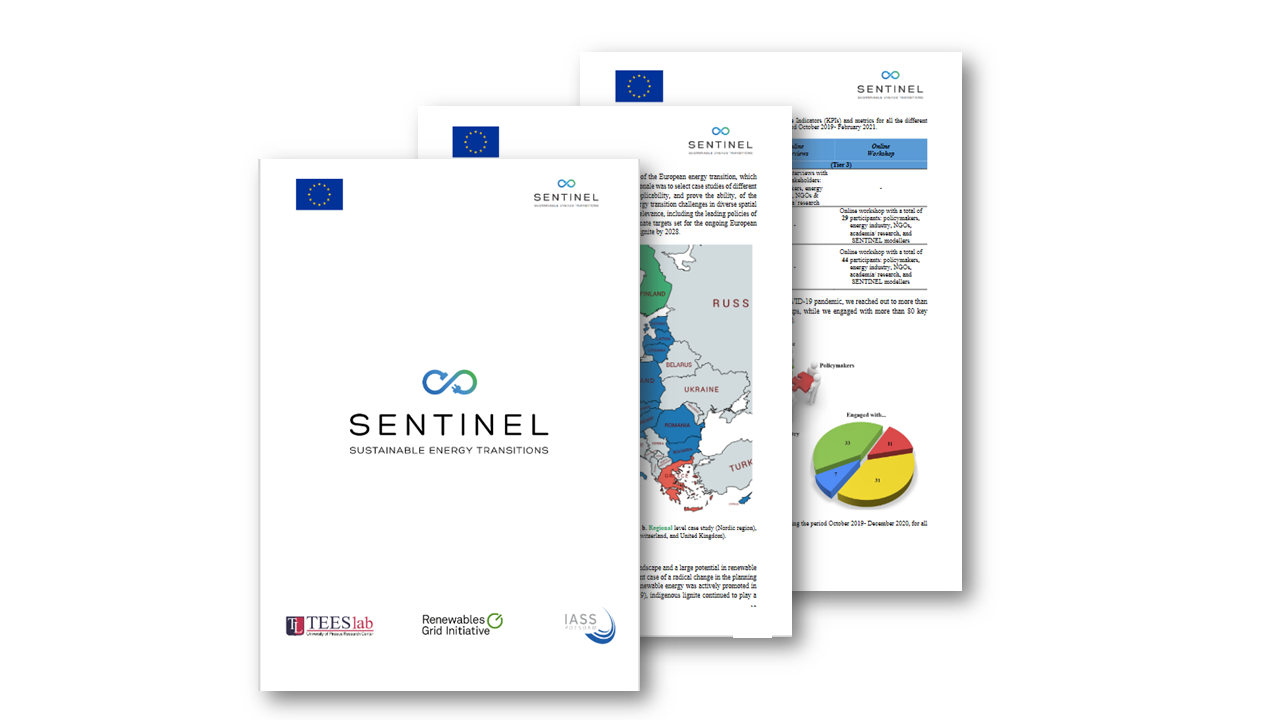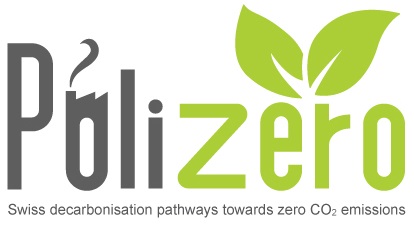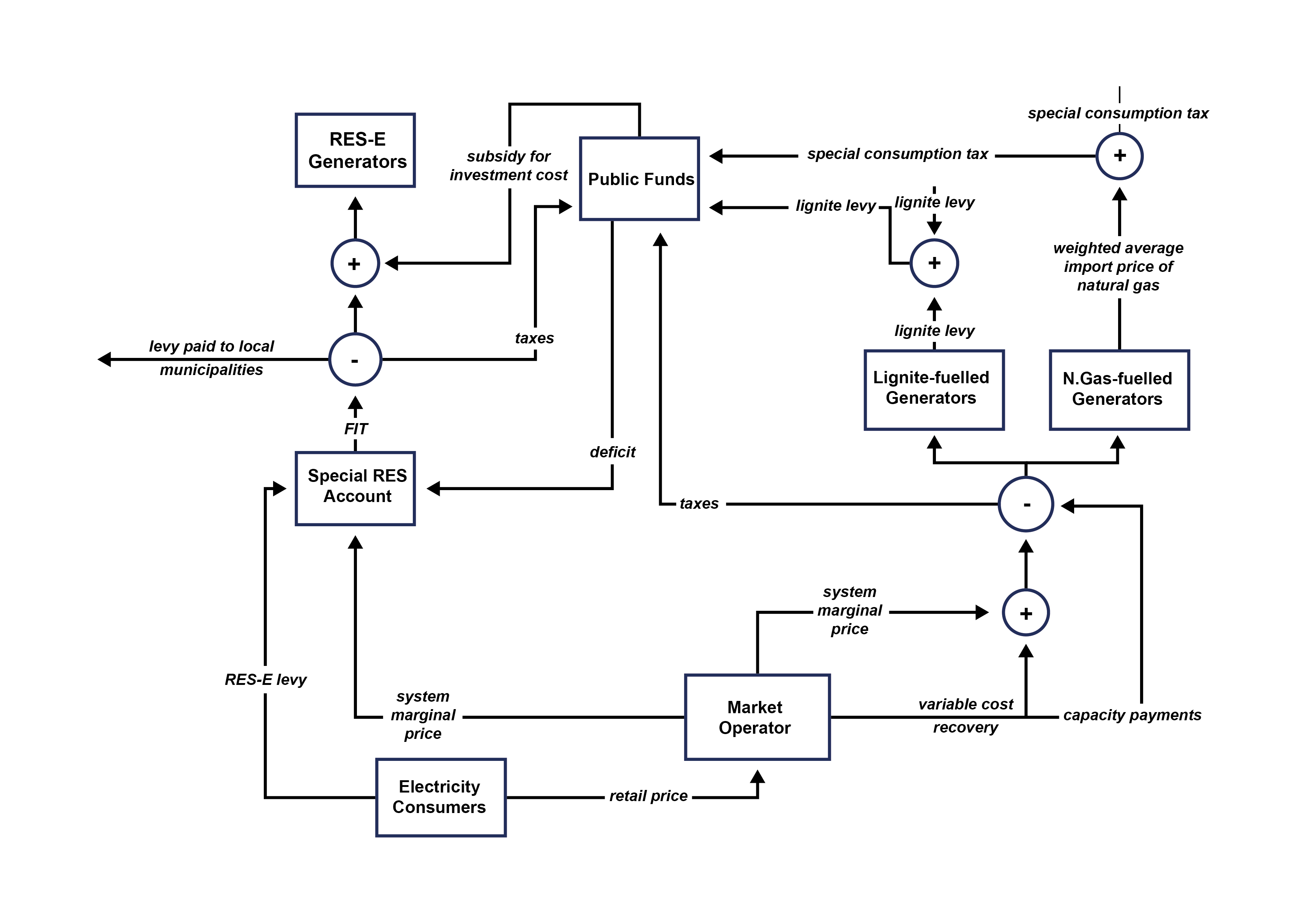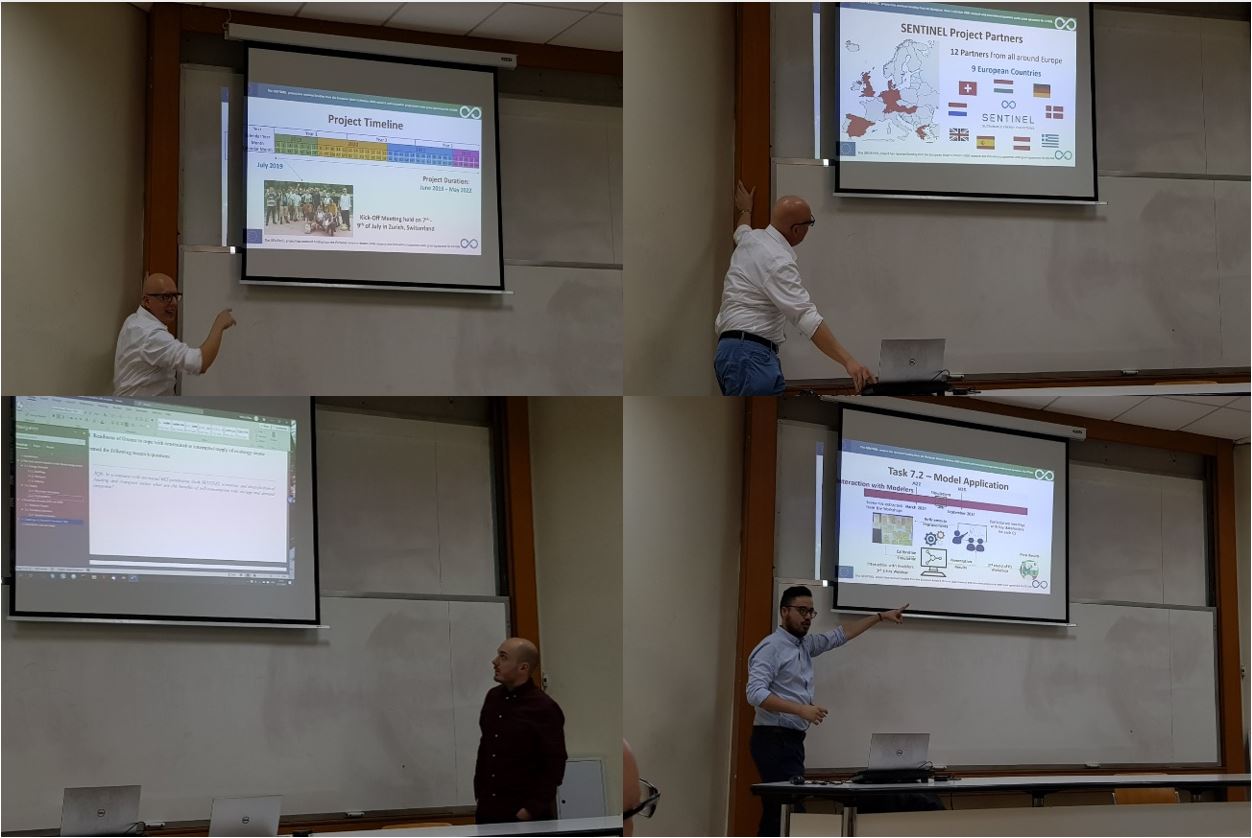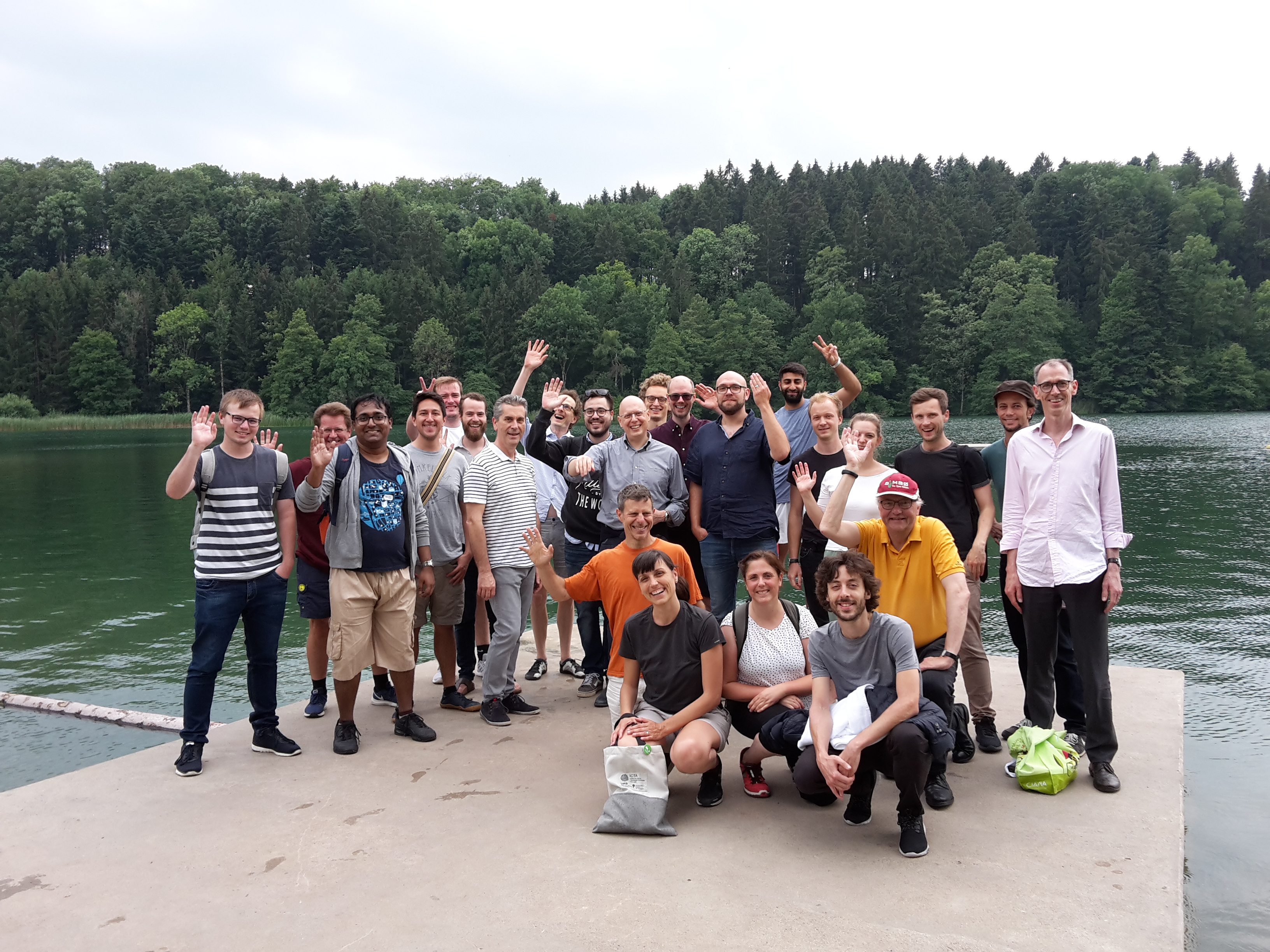-
Test
TEESlab at the CINTRAN Academy Event!
The Technoeconomics Energy Systems laboratory – TEESlab participated at the CINTRAN Academy Event organised by ICLEI Europe and the Regional Development Fund of Western Macedonia within the context of the Horizon 2020 CINTRAN project. The face-to-face capacity-building Academy Event took place in one of the focus regions of the project, Western Macedonia, on 5th-6th of […]

-
Test
How would energy systems in different geographical contexts around Europe evolve in light of the goal of climate neutrality by 2050?
Our new report entitled “Model application in the case studies: challenges and lessons learnt”, produced within the context of the European Commission-funded Horizon 2020 project SENTINEL, has been published! The aim of the report is to showcase the applicability and usefulness of the SENTINEL modelling suite in the context of three case studies in different […]

-
Test
New ENCLUDE report: What are the emerging energy citizenship trends and how energy system models can address them?
Our new report, entitled “Model adjustments and modifications to match emerging energy citizenship trends and patterns”, produced within the context of the ENCLUDE project, is now uploaded on Zenodo. The report describes emerging trends/ patterns of energy citizenship that could lead to the decarbonization of the energy system, and how the ENCLUDE modeling ensemble could […]

-
Test
Energy transition in the residential sector in Greece: Investing in natural gas, or in electrification?
Dr. Vassilis Stavrakas, Senior Research Associate at the Technoeconomics of Energy Systems laboratory (TEESlab), participated at the workshop entitled “Pathways to climate neutrality in Europe with a spotlight in Greece: Challenges, uncertainties, solutions”, which took place on the 30th of June 2022 at Glyfada, Greece, to present our new study entitled “Energy transition in the […]

-
Test
Pathways to climate neutrality in Europe with a spotlight in Greece: Challenges, uncertainties, solutions
Our TEESlab team and the Decision Support Systems Laboratory (DSS Lab), in collaboration with the Public Power Company (PPC), co-organised the workshop entitled “Pathways to climate neutrality in Europe with a spotlight in Greece: Challenges, uncertainties, solutions” on the 30th of June 2022 at Glyfada, Greece. The joint workshop took place within the framework of […]

-
Test
TEESlab at the 3rd International Conference on Energy Research and Social Science (ERSS)
Mr. Dimitris Papantonis Research Associate in the Technoeconomics of Energy Systems laboratory (TEESlab), has participated in the 3rd International Conference on Energy Research and Social Science (ERSS), organised by Elsevier, presenting key findings from the ENPOR project with the special session: “Energy poverty in the European private rented sector: Findings from the ENPOR project”. ENPOR […]

-
Test
Do energy models become better suited or just more complex?
We are glad to inform you that our scientific article “Better suited or just more complex? On the fit between user needs and modeller-driven improvements of energy system models” has been published in the Elsevier’s “Energy” peer-reviewed journal. Energy system models are advancing rapidly. However, it is not clear whether models are becoming better, in […]

-
Test
What are the different energy transition challenges in diverse geographical contexts and scales in Europe?
Energy system models are advancing very rapidly and have been a valuable tool towards well-informed decision- and policymaking processes in Europe. However, despite progress so far, models’ complexity often raises questions about their ability to address multifaced issues of the energy transition, especially the ones that matter to model users. Considering that most existing models […]

-
Test
An Ex-Post Assessment of RES-E Support in Greece
o How is the performance of energy markets affected by the different support mechanisms both in the short- and the long-term? o How can a roadmap of least resistance for a policy measure to attain its goals be developed, without compromising, in parallel, the further development of electricity generation sources? Οur article entitled “An Ex-Post […]

-
Test
SENTINEL case studies: The case of Greece
In the context of the SENTINEL project, Greece has been selected as the national level case study, because it is a representative of a European country with a high dependence on fossil generation and minimal interdependencies with other EU countries. The key industry partner contributing to this case study will be the Greek Public Power […]

-
Test
Welcome to the SENTINEL project !
The “SENTINEL Newsletter: Issue #1” (September 2019) has been released ! The transition to a low-carbon energy system, as understood by the scientific and policy communities, will involve a major redesign of the energy system, primarily around renewable sources, in accordance with 2030 and 2050 targets that the European Commission has defined. The SENTINEL project […]



